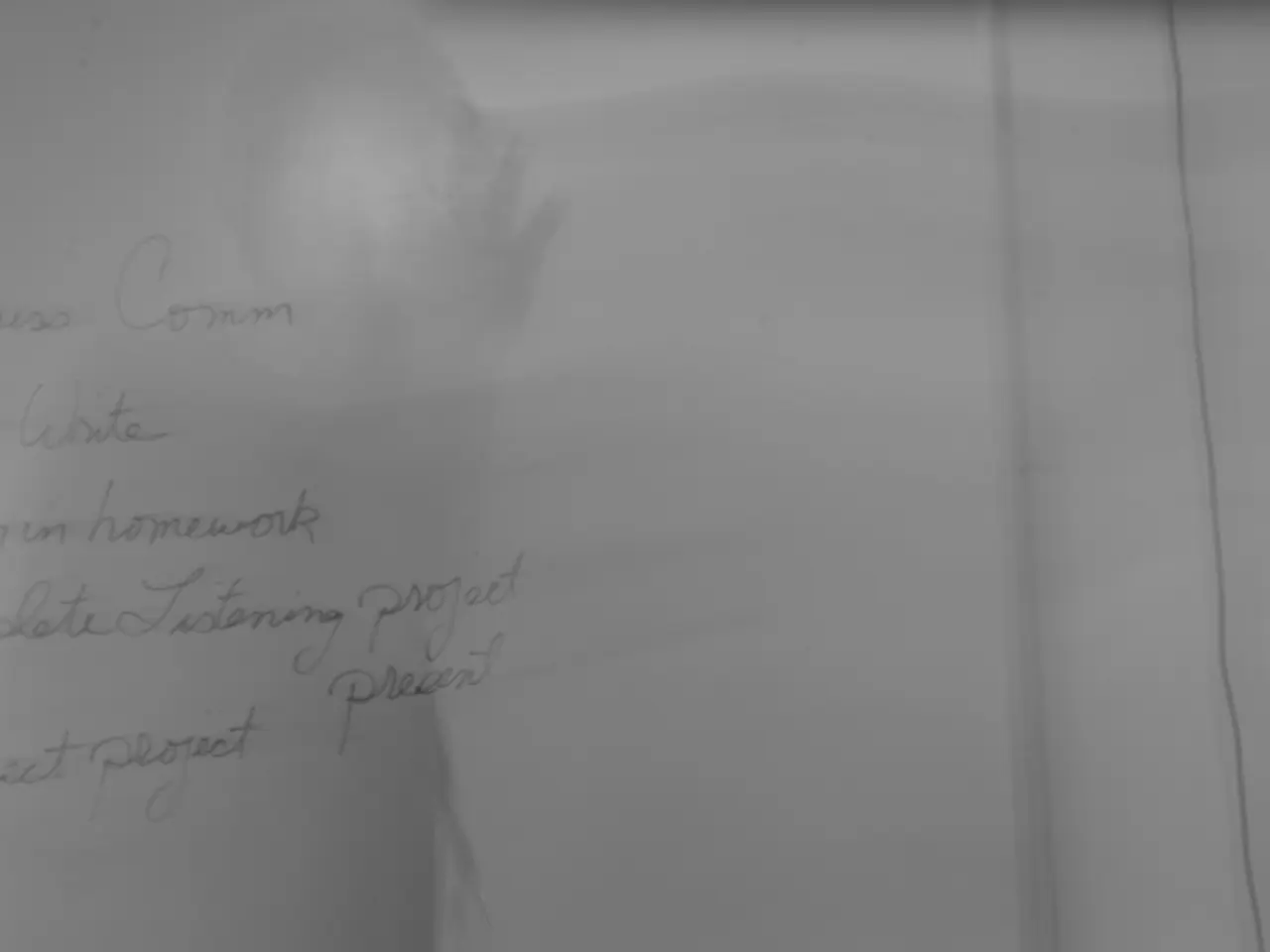Delving Deep: Is It Possible for Profession to Turn into Passion?
In a three-part series produced by "To The Best Of Our Knowledge" and the Economic Hardship Reporting Project, real-life stories of economic struggle are brought to light. The series focuses on present-day economic struggles, shedding light on the importance of meaningful work, the search for jobs that pay enough to live, and the experiences of people with invisible disabilities in the job market.
The final part of the series delves deep into the right to meaningful work, underscoring its significance in addressing economic struggles. It highlights the challenges faced by individuals in their quest for jobs that provide a living wage. The discussion also emphasizes the difficulties faced by people with invisible disabilities in finding suitable employment.
One poignant example showcases refugees who, despite economic hardship and safety risks, contribute meaningfully to their communities through innovative programs like a Work-for-Credit initiative. This model allows refugees to earn materials and services, such as roofing for a church, demonstrating a model where refugees serve and uplift their communities rather than only receiving traditional aid. Another participant supplements her family income through a side-hustle facilitated by access to tools provided without upfront cash, enabling income generation despite economic constraints.
In Myanmar, urban women have launched mushroom farming ventures as a form of meaningful work and income generation amidst economic hardship and conflict. Supported by the UNDP Urban Resilience Project, these women overcame technological barriers and gained training, capital, and technical support to transform unused urban land and create livelihood opportunities.
Financial hardship and job-related challenges are also discussed through personal experiences shared by grantees of the Longleigh Foundation. These narratives highlight how targeted financial assistance can be transformational for unemployed or underemployed individuals seeking meaningful work, reinforcing the value of personalized support systems in economic recovery.
On a broader policy level, reports from research centers such as Georgetown’s Center on Poverty and Inequality emphasize the need for equitable, anti-racist policymaking around human services like Medicaid and CHIP to address economic insecurity impacting families grappling with hunger and poverty, conditions often compounded by invisible disabilities and mental health struggles.
The series also discusses rural program cuts and their long-term impacts on mental health and economic security, underscoring how reductions in support programs can exacerbate struggles related to economic hardship, particularly for people in rural areas who may also face invisible disabilities affecting their job search and work opportunities.
In summary, the series illuminates real-life stories of economic struggle in contexts ranging from refugee communities to urban women in conflict zones and rural families. It proposes solutions that include community-driven work opportunities, supportive financial programs, training and resources for new skills, and systemic policy reforms aimed at supporting those with invisible disabilities and other barriers to meaningful employment. These narratives and programs collectively uphold the right to meaningful work and highlight the importance of adaptable, inclusive, and empathetic economic support systems.
[1] Source: Economic Hardship Reporting Project [2] Source: UNDP Urban Resilience Project [3] Source: Longleigh Foundation [4] Source: Georgetown’s Center on Poverty and Inequality [5] Source: Economic Hardship Reporting Project
- The series produced by "To The Best Of Our Knowledge" and the Economic Hardship Reporting Project emphasizes the importance of community-driven work opportunities, as demonstrated by innovations like the Work-for-Credit initiative among refugees.
- Financial assistance, such as that provided by the Longleigh Foundation, can be transformative for individuals seeking meaningful work, as highlighted by the personal stories shared by its grantees.
- Myanmar's urban women, struggling with economic hardship and conflict, have found meaningful work and income generation through mushroom farming, a program supported by the UNDP Urban Resilience Project.
- The Georgetown’s Center on Poverty and Inequality advocates for equitable, anti-racist policymaking around human services like Medicaid and CHIP to address economic insecurity faced by families dealing with hunger and poverty, often compounded by invisible disabilities and mental health struggles.




